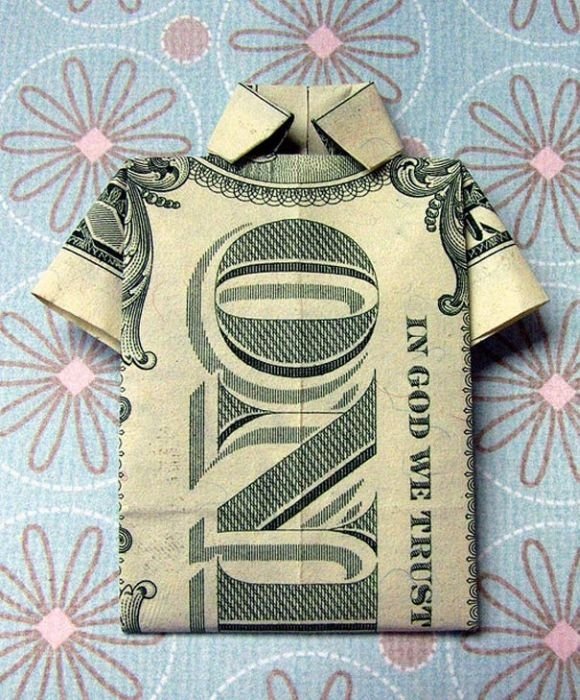|
|
Money Origami
|
Washi (和紙) is the traditional origami paper used in Japan. Washi is generally tougher than ordinary paper made from wood pulp, and is used in many traditional arts. Washi is commonly made using fibres from the bark of the gampi tree, the mitsumata shrub (Edgeworthia papyrifera), or the paper mulberry but also can be made using bamboo, hemp, rice, and wheat.
Artisan papers such as unryu, lokta, hanji, gampi, kozo, saa, and abaca have long fibres and are often extremely strong. As these papers are floppy to start with, they are often backcoated or resized with methylcellulose or wheat paste before folding. Also, these papers are extremely thin and compressible, allowing for thin, narrowed limbs as in the case of insect models.
Paper money from various countries is also popular to create origami with; this is known variously as Dollar Origami, Orikane, and Money Origami.
Towels and toilet paper are often folded by hotel staff to indicate to guests that the bathroom has been recently cleaned.
|
|









